I’m nearing the tip of the second month of my Foundations venture—a year-long effort to enhance twelve completely different foundations for dwelling properly. This month’s focus was productiveness. In the event you’re curious, you may learn my essays on the primary month, health, right here, right here and right here.
Subsequent week, I’ll share a few of my reflections on the month, however this essay is dedicated to what I realized from my studying. Every month, I’m doing a deep dive into some essential books and analysis on every matter. This month, I completed ten books.
Productiveness is a well-recognized matter for me. I learn a lot of the basic books on the subject years in the past. Earlier than beginning my second ebook, I even briefly flirted with writing one other Full Information on the subject and spent a few months researching the roots of the pondering on this space. Consequently, loads of the books I tackled this month have been re-reads—books that have been main influences in my youth and which I needed to view once more from a contemporary perspective.
The 1-Minute Abstract of What I Realized
Listed below are the essential takeaways from this month’s analysis:
Enthusiasm is the important thing to productiveness. Completely satisfied employees are productive employees. Stress as a car for producing nice work is overrated.
Productiveness is a key to happiness. Regardless of productiveness’s much-maligned picture as a metric of capitalist oppression—most individuals wish to contribute significant work and to really feel efficient of their skilled lives.
Managing power and motivation beats managing time. We deal with ourselves like machines, slightly than organic methods, ignoring the significance of restoration.
Easy cognitive scaffolding can considerably improve outcomes. Checklists and easy instruments for monitoring work can offload the psychic burden of labor, releasing us up for distinctive efficiency.
How a lot you’re employed is a private selection based mostly on priorities. Regardless, productiveness ought to be a central purpose since it’s, at its core, about aligning our human wants with our want to do significant work.
Transient Notes on the ten Books I Learn
My favourite ebook was a re-read: Stephen Covey’s The 7 Habits of Extremely Efficient Folks. Regardless of the considerably tacky title and folksy means Covey writes, this ebook is a profound meditation on what it means to be an efficient individual and the way we must always attempt to stay.
For these interested by a sensible system that may ship instant outcomes, you may’t go improper with David Allen’s Getting Issues Finished. Re-reading this ebook was a pleasure, because it has enormously influenced my fascinated by productiveness.
Lastly, for an entertaining learn that has instant worth, I recommend Atul Gawande’s The Guidelines Manifesto.
1. Getting Issues Finished by David Allen
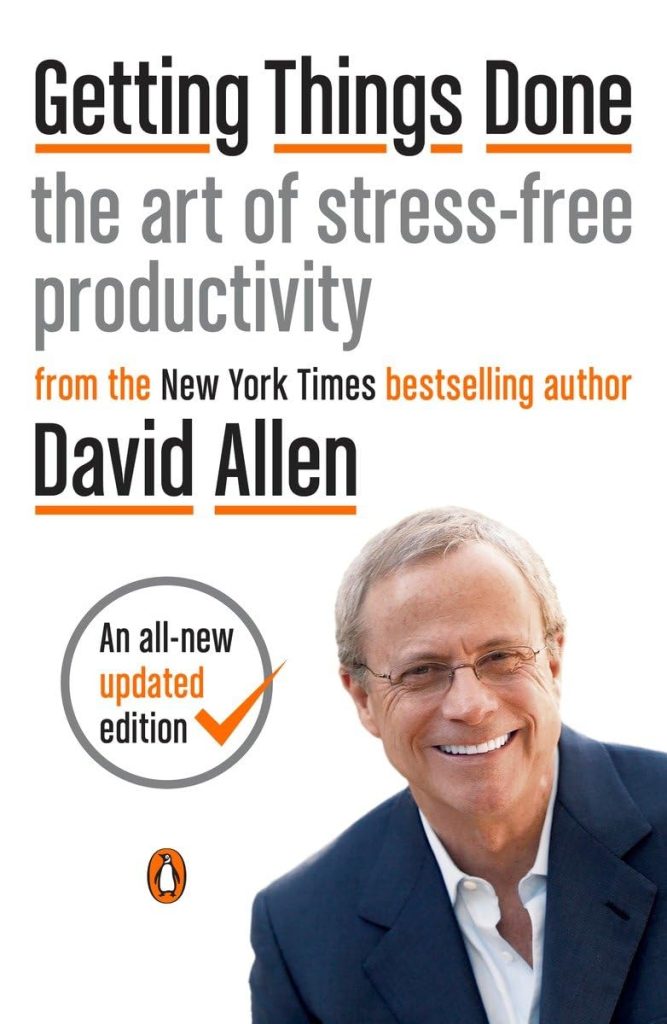
Getting Issues Finished is a cult hit amongst productiveness junkies for a purpose: this technique perpetually adjustments how you consider getting work completed.
The central concept is to create a full-capture system during which all your duties, appointments, concepts and tasks reside so you may totally focus in your work and never be distracted by worrying about whether or not you’re forgetting one thing.
2. The Energy of Full Engagement by Jim Loehr and Tony Schwartz
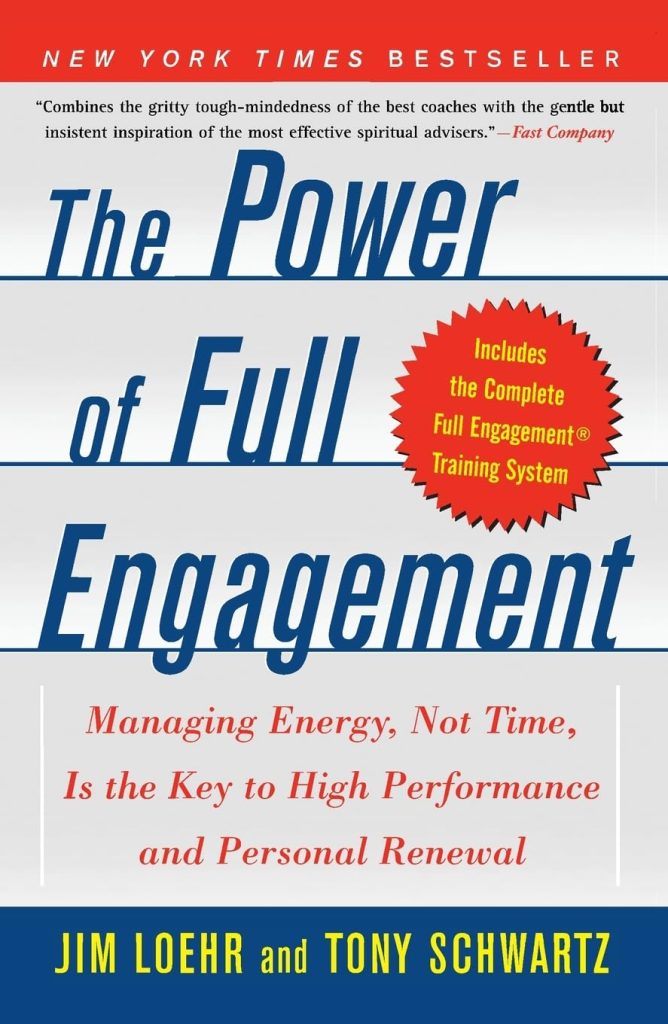
Managing power, not time, is the important thing to peak efficiency. We should always work the best way athletes prepare, oscillating between durations of intense focus and deep restoration.
The other sample, linearity, is extra frequent in our working lives. We’re anticipated to carry out constantly, with out relaxation, for days, weeks and even years. Our foundations of power start to crumble as we really feel crushed by the burdens positioned upon us.
The answer is to revamp all of the points of our lives, from health and weight loss plan to our goal and life’s objectives, in order that we will undertake extra pure rhythms that permit us to keep up excessive ranges of power and enthusiasm.
3. The Efficient Govt by Peter Drucker
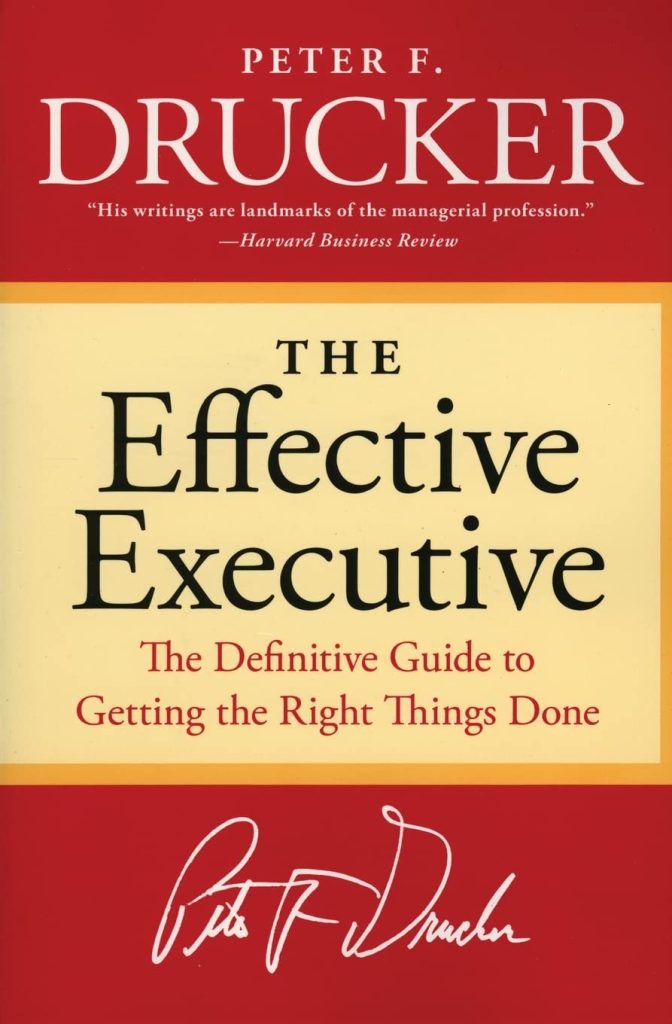
“Efficient executives, in my statement, don’t begin with their duties. They begin with their time. And they don’t begin out with planning. They begin by discovering out the place their time truly goes.”
Peter Drucker is the guru’s guru on productiveness. He coined the time period “data employee,” and just about each concept about working successfully in fashionable society may be traced, instantly or not directly, to his pondering. I loved re-reading this ebook, whose central concepts of monitoring your time, focusing in your contribution (slightly than the work), and emphasizing strengths stay related at this time.
4. The Progress Precept by Teresa Amabile and Steven Kramer
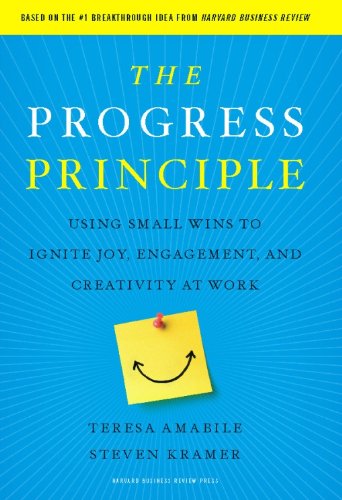
Harvard professors Amabile and Kramer performed a big research tens of 1000’s of day by day work diaries of workers in a number of companies and industries. They concluded {that a} constructive interior work life is important to office efficiency and that, in flip, the sensation of progress is a very powerful ingredient in a constructive interior work life.
This may increasingly appear apparent, however in surveys, most managers ranked “supporting progress” useless final within the checklist of things influencing morale, and lots of nonetheless maintain to the view that high-pressure environments convey out one of the best efficiency.
5. Stream by Mihaly Csikszentmihalyi
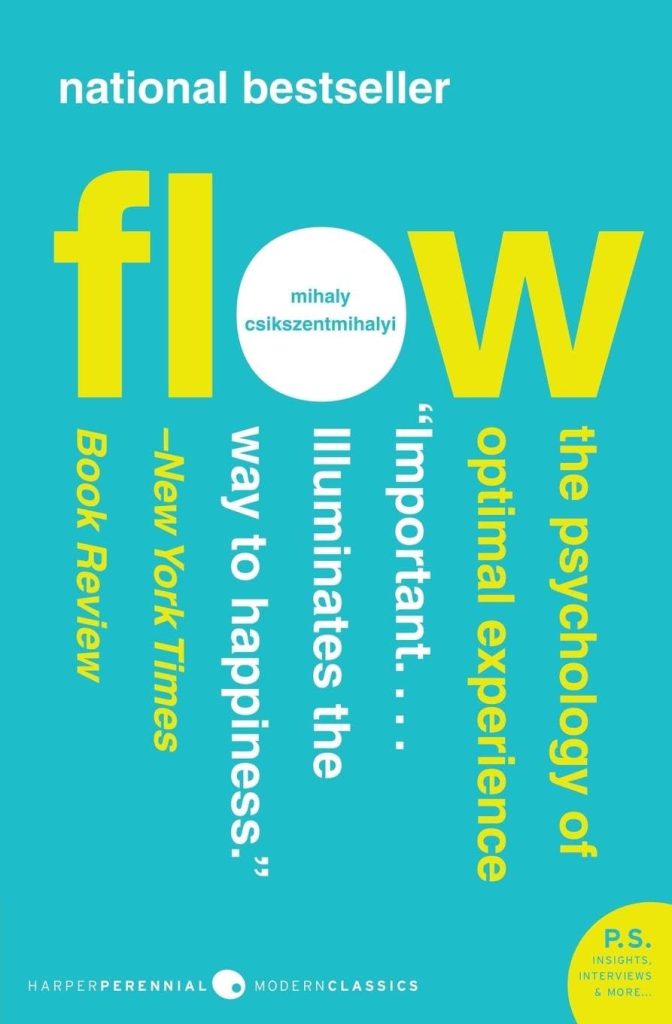
I’ve learn loads of Csikszentmihalyi’s educational work, so it was fascinating to re-read his magnum opus on the position of optimizing acutely aware expertise within the pursuit of the nice life.
On the one hand, I discover a lot of his examples and arguments persuasive. Alternatively, I really feel like I perceive movement lower than once I began—since this idea seems to embody not solely the sensation of absorption whereas engaged in deep duties and hobbies but in addition all kinds of different life circumstances Csikszentmihalyi describes positively. Maybe it’s simply my expectations being violated right here, however I had been underneath the impression that movement was a way more rigorously outlined educational assemble.
6. The Guidelines Manifesto by Atul Gawande
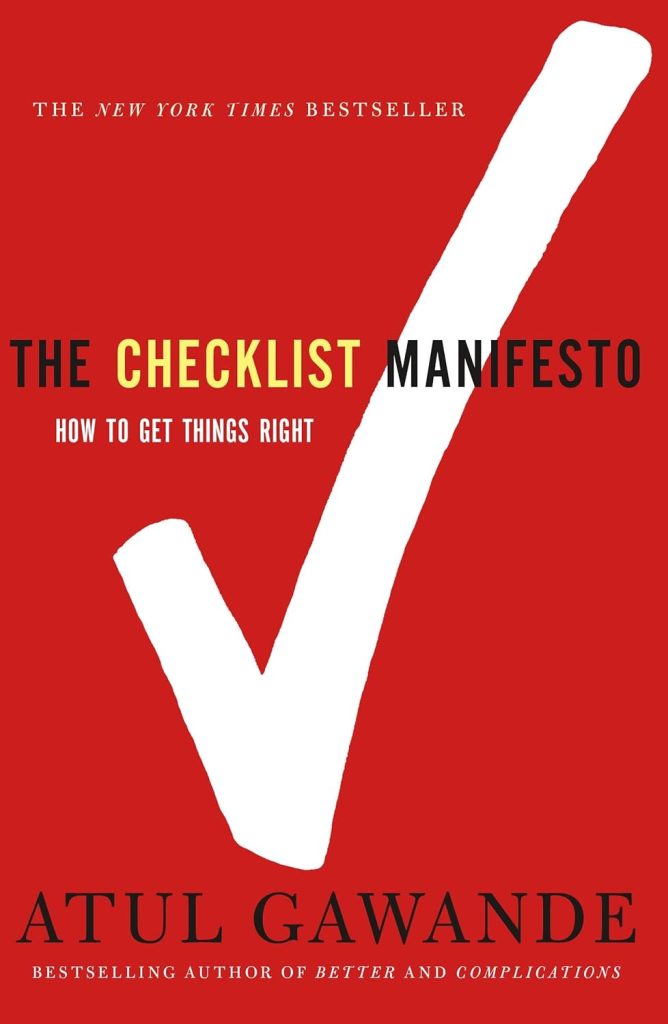
Checklists save lives. But many professionals resist utilizing them, feeling that, as extremely educated consultants, one thing so simple as ticking off a field is beneath them.
Gawande argues persuasively that we want the cognitive security internet checklists present exactly as a result of we stay in a time of such intensive experience. Our work has grow to be more and more difficult, and following “greatest practices” completely is past the capabilities of even the neatest of us.
7. The 4 Disciplines of Execution by Chris McChesney, Sean Covey, Jim Huling, Beverly Walker and Scott Thele
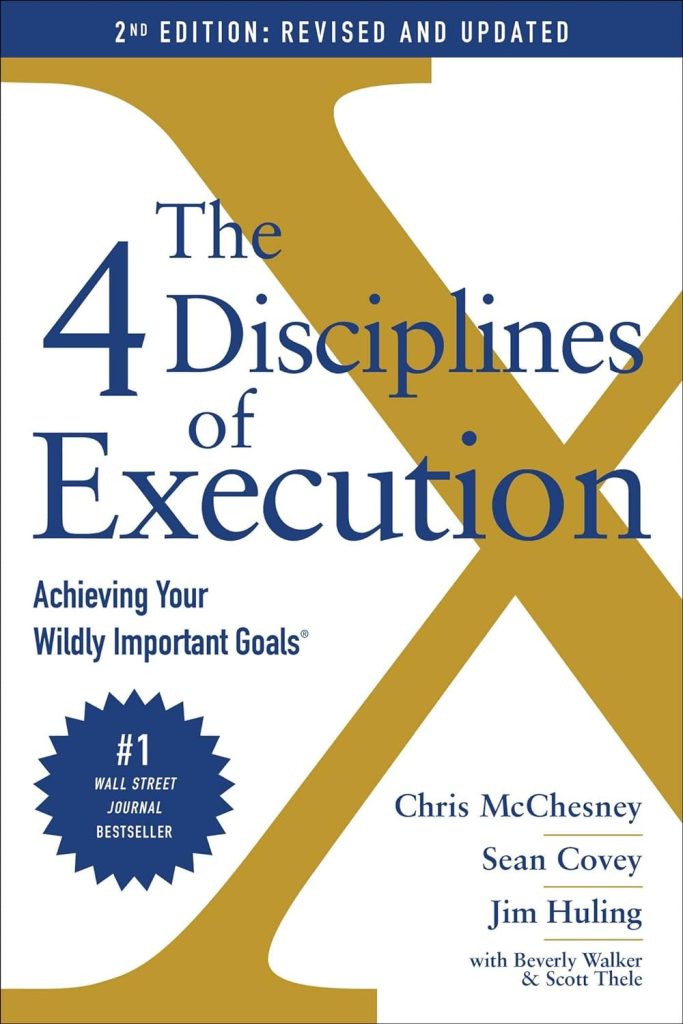
Most enterprise coaching is in technique, however execution is what journeys up most tasks. 4DX is a good useful resource for methods to make execution occur in huge organizations—and for your self. The 4 disciplines are:
- Select a single focus, a “wildly essential purpose” you’ll attempt to obtain above and past the day-to-day whirlwind of your working life.
- Monitor your progress on the purpose. Specifically, separate the lag measures you care about from lead measures you may truly affect.
- Put up a scoreboard so everybody can see your progress.
- Keep accountable by means of a weekly assembly the place you see how one can make progress occur.
This ebook has an “within the trenches” feeling, overlaying many nuances which have come up in making use of this framework to a whole bunch of organizations.
8. The Now Behavior by Neil Fiore
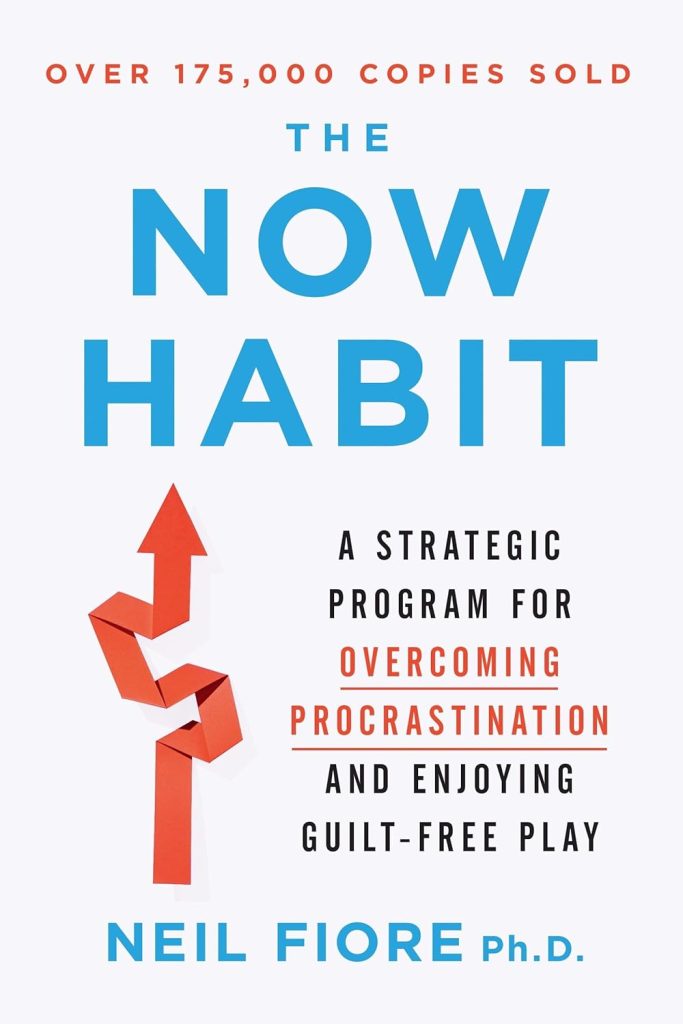
Why will we procrastinate? Psychologist Fiore argues that the beliefs and self-talk we interact in hold in any other case prime performers from persistently participating of their greatest work. By rescripting our interior dialog, we will cease ourselves from destructively delaying doing the issues we have to do.
I notably like Fiore’s suggestion of an “unschedule” or reserving, prematurely, your guilt-free day without work. Too usually, we procrastinate, really feel there isn’t sufficient time, after which commit ourselves to a hypothetical schedule of never-ending work. But this schedule is so unappealing that we unconsciously insurgent and procrastinate on beginning, thus exacerbating the underlying issues that induced us to suggest the onerous schedule within the first place.
9. Managing Oneself by Peter Drucker
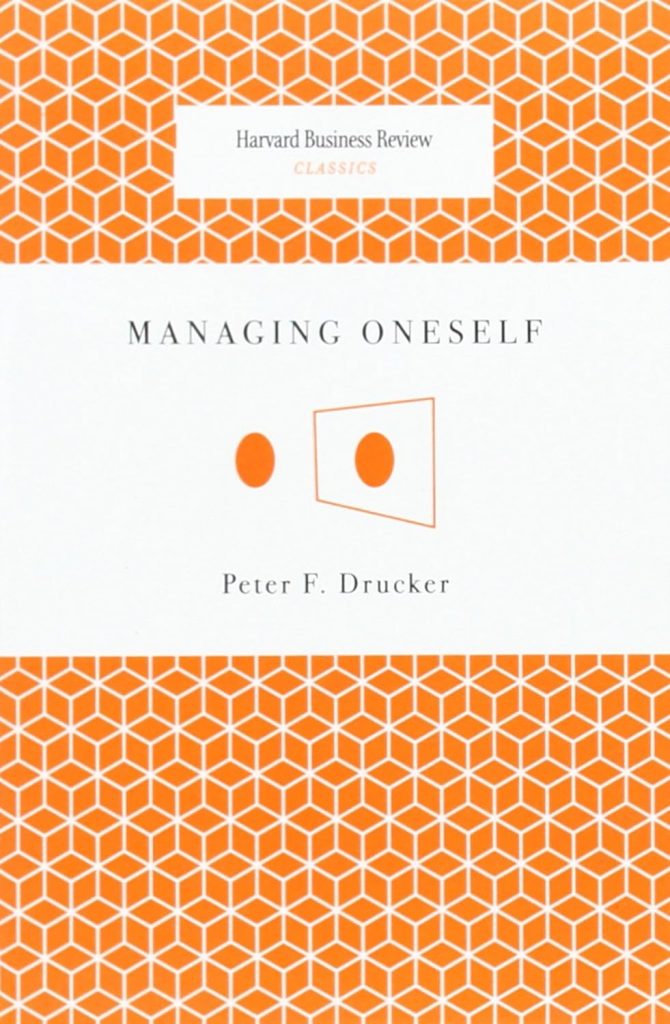
This ebook is sort of brief, extra of a protracted essay slightly than a ebook. (As extra books ought to be.)
Maybe the most important takeaway I bought was Drucker’s recommendation on managing the midlife disaster. He argues that an individual who has reached the apex of their profession, which frequently occurs in a single’s 40s, will possible really feel bored. The answer, he argues, is to domesticate secondary hobbies and volunteer pursuits that can maintain engagement within the second half of life.
10. The 7 Habits of Extremely Efficient Folks by Stephen Covey
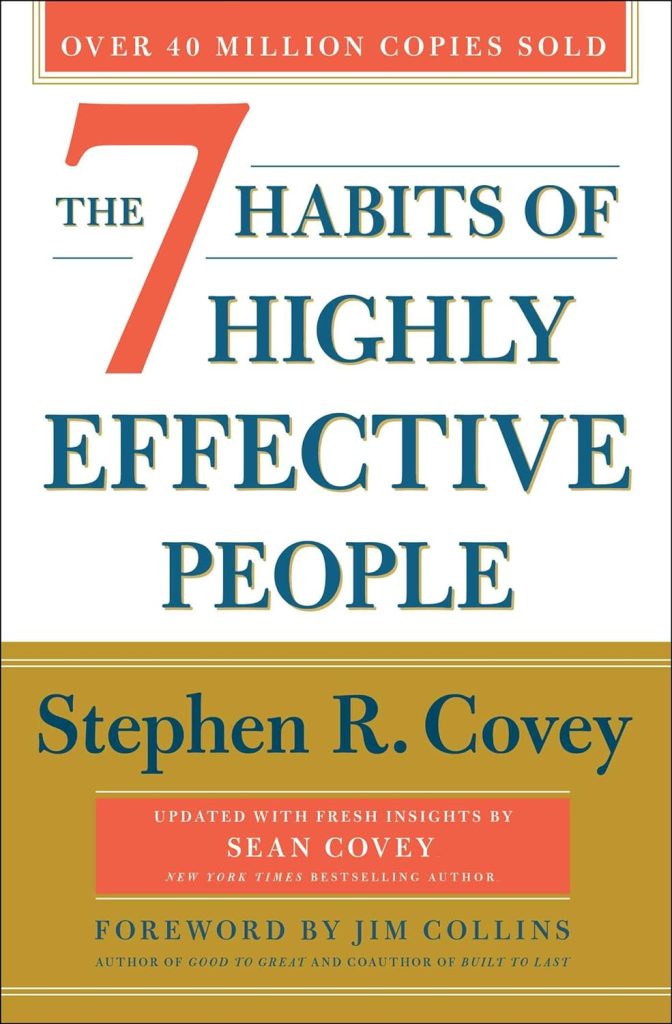
Most books are intelligent. Few are sensible. Covey’s is without doubt one of the latter.
I first learn this ebook as an adolescent. Maybe as a result of I now have kids of my very own, the interpersonal classes in Covey’s ebook struck me as notably related. Covey himself had 9 kids and steadily references parenting in his examples.
If there’s a central concept on this ebook, it’s that being good precedes being nice, and conducting your self in ways in which show true character should take precedence over techniques that merely get a outcome.
Moralizing self-help is retro nowadays. Maybe it smells an excessive amount of like organized faith, which has been undermined by means of culture-warring and the well-publicized failings of many organized sects. Consequently, there’s a bias to current value-neutral tactical recommendation—methods for reaching outcomes which might be agnostic to deeper motivations.
Possibly it’s simply me getting older, however I’m more and more satisfied that doing what’s proper and doing what’s efficient can’t be separated, and that methods to maximise our needs, with out first asking whether or not these needs must be maximized, are finally self-defeating.
_ _ _
That’s it for my notes this month. Subsequent week, I’ll present a recap of how this month’s efforts to enhance my productiveness methods went, earlier than I embark on the third basis in my year-long venture: cash.

